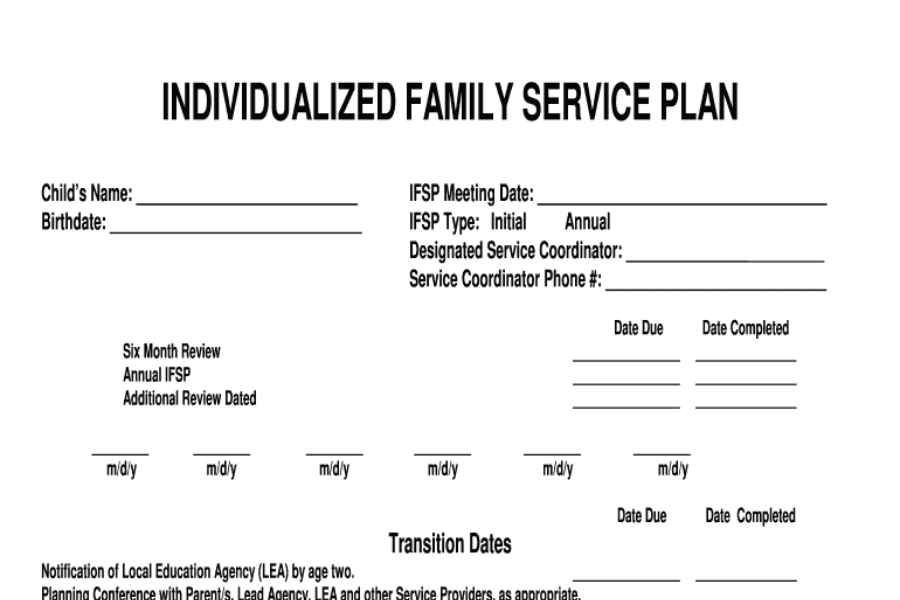Introduction
Personalised care is crucial in the fields of education, social services, healthcare, and disability assistance systems. An Individual Service Plan (ISP) is useful in this situation. An ISP makes sure that services are customised rather than generic by designing them to fit each person’s unique needs, preferences, and objectives.
This article defines an Individual Service Plan, discusses its significance, outlines its operation, and illustrates how it improves results for people in a range of support contexts.
What Is an Individual Service Plan (ISP)?
A customised, comprehensive document known as an Individual Service Plan (ISP) lists the precise services, supports, and tactics intended to satisfy each person’s unique requirements and goals. ISPs are frequently utilised in domains such as
- Services for people with developmental impairments
- Mental health services
- Programs for rehabilitation
- Elderly care
- Assistance with education for students with unique needs
Every ISP is person-centred, which means that the planning process is driven by the opinions, preferences, and choices of the individual.
Key Components of an ISP
Typical components of a successful individual service plan are:
- Personal Details: background, health, and demographics
- Objectives and Goals: Both immediate and long-term goals
- Support Services: Particular courses of action, treatments, or help needed
- Functions and Accountabilities: Assigned tasks for the person, employees, and carers
- Schedules: Anticipated benchmarks and evaluation times
- Methods of Evaluation: How advancement will be monitored and assessed
The Importance of an Individual Service Plan
An ISP is important for a number of reasons:
- Personalisation: It guarantees that assistance is precisely in line with each individual’s particular requirements and objectives.
- Accountability: The provision of agreed-upon services is the responsibility of service providers.
- Goal tracking allows for the measurement, celebration, and necessary adjustment of progress.
- Encouraging people to take part in their own life planning and decision-making is known as empowerment.
- Consistency: Ensures smooth support by giving everyone engaged a clear road map.
Who Needs an Individual Service Plan?
Many people benefit from having an ISP, including:
- Individuals with developmental disabilities
- Patients in mental health
- Students in need of special education assistance
- Senior citizens receiving long-term care
- Individuals undergoing rehabilitation after operations or injuries
In essence, having an ISP can help anyone who needs consistent, organised support.
How Is an Individual Service Plan Developed?
The ISP process generally follows these steps:
- Assessment of Needs
A thorough evaluation identifies the individual’s strengths, needs, preferences, and goals.
- Collaboration and Team Meetings
A team that may include the individual, family members, caregivers, healthcare providers, and social workers collaborates to design the plan.
- Setting SMART Goals
Goals should be Specific, Measurable, Achievable, Relevant, and Time-bound.
- Selecting Services and Supports
Appropriate services are chosen to help the individual meet their goals.
- Documenting the Plan
All details are clearly outlined in writing for transparency and tracking.
- Implementation
Services begin as per the plan, with all parties aware of their responsibilities.
- Review and Revision
ISPs are dynamic. Regular reviews ensure that the plan evolves with the individual’s changing needs.
Common Problems with ISPs and How to Solve Them
Lack of Individual Participation
Solution: Actively involve the individual in every step. Their voice should guide the process.
Vague Goals
Solution: Use SMART goal-setting principles to ensure clarity and measurability.
Inconsistent Service Delivery
Solution: Assign clear responsibilities and timelines. Conduct regular team check-ins.
Failure to Update the ISP
Solution: Schedule routine reviews (at least annually) or update immediately when significant life changes occur.
Best Practices for an Effective Individual Service Plan
- Person-centered focus: Always prioritize the individual’s preferences and choices.
- Team collaboration: Involve all stakeholders — including family and support professionals.
- Clear documentation: Avoid jargon and ensure that goals and strategies are easy to understand.
- Flexibility: Be prepared to adapt the plan based on the individual’s evolving needs.
- Ongoing monitoring: Regularly evaluate progress and adjust interventions accordingly.
Conclusion
An Individual Service Plan (ISP) is a powerful tool for providing meaningful, customized support to individuals who need it. By focusing on personalization, collaboration, and measurable goals, ISPs help ensure better outcomes and higher quality of life. Whether in disability services, mental health, education, or elder care, a well-crafted ISP offers clarity, consistency, and empowerment.
Proper development, consistent implementation, and regular reviews make an ISP not just a document, but a living plan that evolves with the person it supports.
FAQs About Individual Service Plans
Q1: How often should an ISP be reviewed?
Most ISPs are reviewed at least once a year, but significant life changes may require more frequent updates.
Q2: Who is responsible for writing the ISP?
Typically, a team of professionals (case managers, social workers, therapists) collaborates with the individual and their family to write the ISP.
Q3: Can the individual refuse services outlined in the ISP?
Yes. An ISP must be consented to by the individual; forced services would violate its person-centered approach.
Q4: What happens if the goals in an ISP are not met?
The plan should be reassessed to identify barriers and adjusted with new strategies to better meet the individual’s needs.
Q5: Are Individual Service Plans legally binding?
In many cases, especially in government-supported programs, ISPs are legally recognized documents that obligate service providers to deliver specified supports.
Explore the latest global news and events at Worlddescribe.com.



